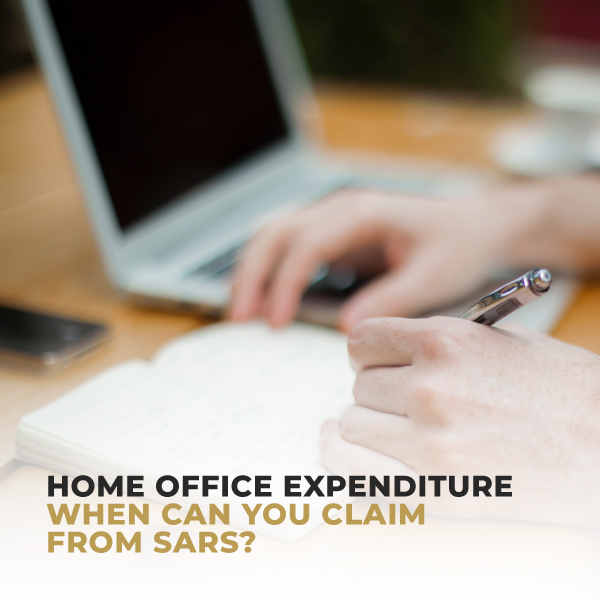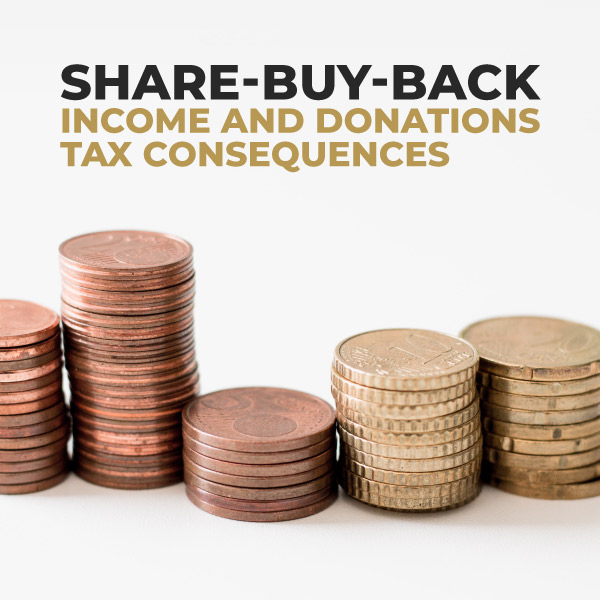HOME OFFICE EXPENDITURE: WHEN CAN YOU CLAIM FROM SARS?
With the ever-looming threat of COVID-19 still hanging over South Africa at large, business has had to come to terms with a “new normal”, which has and will continue to result in many taxpayers needing to work from home for the foreseeable future.
This has had many asking whether they can claim a deduction from their taxes for these expenses. The good news for some is that it is possible to claim a deduction where one meets the criteria for this; however, the permutations in the context of employees are quite limiting.
The general rule for deductions
Section 11 of the Income Tax Act provides the different circumstances in which deductions will be allowed for a taxpayer in determining their taxable income.
The general rule is contained in section 11(a) of the Act and states that this will be limited to instances where the taxpayer is carrying on a trade, which includes “every profession, trade, business, employment, calling, occupation or venture”. Further, the expenditure in question must have actually been incurred in the production of that taxpayer’s income.
In effect, employees and those who are self-employed and generally work from home may be able to claim a deduction for related expenses in order to reduce their overall tax liability.
However, section 23(b) of the Act excludes the deduction of “domestic or private expenses”, which means that the circumstances in which one can claim a deduction in this regard are limited, especially in the case of an employee.
How do I know if I qualify?
The exclusion of allowable deductions for “private or domestic expenses” in section 23(b) of the Act would apply where the deduction is for part of a premises that is occupied and specifically equipped for the purposes of trade, and which is used regularly and exclusively for such purposes. Put differently, this would need to be a separate space in one’s home that is specifically allocated for your trade, such as a study and which must be used regularly for that purpose. This requirement will not be satisfied where for example you work at your dining room table. The requirement applies, irrespective of the person in question’s trade i.e. if they are a sole proprietor, freelancer or employee.
For employees, section 23(b) tapers the requirements further, depending on what type of employee you are. Distinction is made between employees who derive their income from employment mainly (more than 50%) from commission or other variable payments, which are based on work performance, and ordinary employees.
In case of the former, the employment duties must be performed mainly (more than 50%) outside an employer-provided office. In the case of an ordinary employee, the employee’s duties must be performed mainly (more than 50%) at their home office.
In other words, for an ordinary employee, the majority of their employment duties must factually be performed at their home office.
Section 23(m) limits the amounts that may be claimed by ordinary employees somewhat further. This provision determines that employees (other than commission-based earners) may only deduct very specific amounts, which include pro-rated (based on the amount that can be allocated to the home office) deductions based on rent, interest on mortgage bond, repairs to the premises, rates and taxes, cleaning, wear and tear, and all other expenses relating to their house.
It is critical to keep any documentation, such as invoices that relate to the expenses incurred, as SARS will likely ask for these upon assessment. The employee must also be able to submit the calculations that support the apportionment of the expenditure.
![2025-logo-[Recovered] Tax Consulting South Africa](https://www.taxconsulting.co.za/wp-content/uploads/2025/01/2025-logo-Recovered.png)






